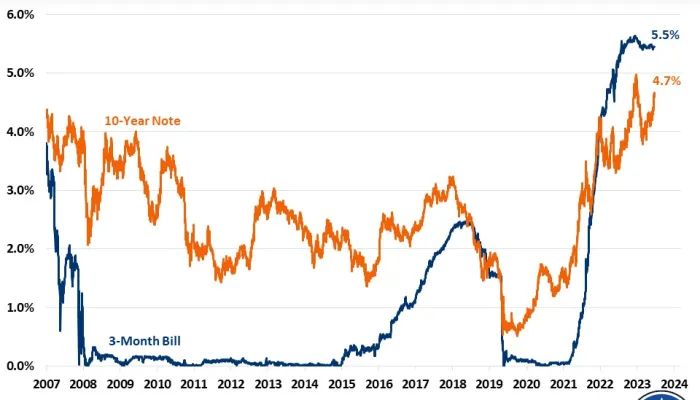Fiscal Failures Hurt U.S. Competitiveness
UPDATE: See New American Contract's response to our post. They argue there may be trade-offs between improving the fiscal situation and strengthening other aspects of U.S. competitiveness.
Second overall is still pretty good, but as our friends over at New American Contract point out, "the numbers behind the US ranking are not reassuring."
They point to U.S. rankings on infrastructure (14), primary education enrollment (77), education expenditures (45), HIV prevalence (85), and life expectancy (30) as particularly troubling. They also worry that in some of the areas where we do rank as competitive, such as labor market efficiency, there are underlying structural problems.
Looking closely at the numbers, though, it is the nation's fiscal state that is most problematic. Out of 133 countries, we are ranked 122nd for government surplus/deficit and 114th on government debt. We are also in the bottom quarter of all countries (109th and 108th) for national savings rate and banking soundness.
In addition. we rank poorly on a number of other fiscal issues. We are in or near the bottom half of countries for wastefulness of government spending (68), extent and effect of taxation (59), total tax rates (67), and agricultural policy costs (59).
If these issues are not addressed, it will likely spell a continued decline in U.S. competitiveness. As the World Economic Forum report wrote (emphasis added):
The country's greatest overall weakness continues to be related to its macroeconomic stability, where it ranks 93rd, down from 66th last year... With the many long-term claims on the budget, such as defense, pensions, and other social payments (including healthcare), the prospects for sustained fiscal adjustment do not seem bright. It is clear that in order to ensure rising prosperity for future generations, the United States must get its macro house in order rapidly once the crisis subsides.
Just another reason for a fiscal consolidation plan.
Indicators where the U.S. ranks in the bottom quarter:
| Indicator | Rank |
| Government Surplus/Deficit | 122 |
| Business Cost of Terrorism | 121 |
| Government Debt | 114 |
| National Savings Rate | 109 |
| Soundness of Banks | 108 |


